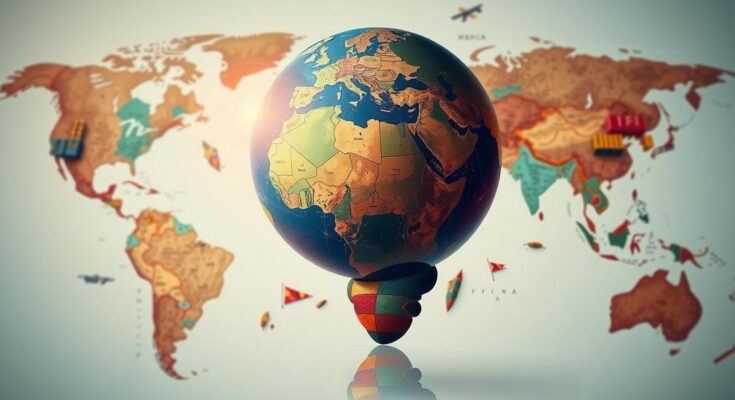The article examines the complexities of Trump’s criticism regarding South Africa’s land reform policies, framed within the historical context of apartheid and its long-term effects on land ownership. It discusses the implications of recent legislative changes enabling state expropriation without compensation and highlights different perspectives among Black farmers, white landowners, and international observers, including concerns about economic consequences and diplomatic relations.
The debate surrounding President Donald Trump’s severe criticism of South Africa primarily revolves around the country’s land reform policies and its diplomatic stance towards Israel. The narrative has roots in the historical injustices of apartheid, under which many Black South Africans lost land without compensation. Despite recent laws aimed at rectifying this injustice, tensions about land ownership and compensation linger.
In Mpumalanga, Bernard Shabangu recounts his grandfather’s bravery in subduing a lion, a story symbolizing courage and leadership in his community. Shabangu’s family has also experienced the harsh realities of the Group Areas Act, which stripped them of land under apartheid legislation. In contrast, the new South African constitution aims to return land to Black farmers, yet the implementation of this policy has been gradual, prompting the Matsamo Communal Property Association, which he leads, to seek collaborative partnerships with white farmers.
In January 2020, President Cyril Ramaphosa enacted a controversial land seizure law allowing state expropriation without compensation. While proponents argue this addresses historic inequalities, critics, including Trump, view it as a threat to private property rights. Trump accused the Act of promoting “hateful rhetoric” against minority landowners and suggested halting aid to South Africa, raising concerns about potential repercussions for trade agreements valued at billions.
The land reform policy has ignited fears among white farmers like Lion du Pressis, who emphasizes the necessity of fair compensation for expropriation. He argues the absence of guaranteed property rights deters investment and strikes at the heart of agricultural productivity, a key industry for South Africa. AfriForum, advocating for Afrikaners, shares similar concerns about the investor perception of the new law fueling economic uncertainties.
Professor Ruth Hall provides a historical perspective, noting that structural inequalities stemming from the Natives’ Land Act of 1913 continue to shape land access. Although there is a burgeoning Black middle class, many continue to grapple with inadequate access to economically valuable land. The ongoing debate revolves around whether the no-compensation rule contravenes South Africa’s constitutional property rights.
Moreover, external influences have emerged as former President Trump issued an executive order on allegations that South Africa’s law discriminated against Afrikaners. This order claimed a direct correlation between South Africa’s internal law and its support of international relations, particularly criticizing its position on Israel. The Trump administration’s intervention has added complexity to the land reform discourse and international diplomacy.
Amid these developments, both Trump and Elon Musk have expressed viewpoints on South African policy. Musk criticized the Black Economic Empowerment policy as racially biased and contrary to equitable ownership distributions, highlighting the ongoing struggles for balance between race, economics, and property rights.
The fundamental question remains whether South Africa can pursue necessary land reform without alienating crucial trade partners like the United States. Ramaphosa stressed the need for a diplomatic approach amidst the escalating scrutiny and apprehensions about trade dynamics, impacting the nation’s agricultural sector and economy overall. As the country navigates this arcane issue, the consequences of political decisions on international relations and local equity are becoming increasingly complex.
The intersection of land reform and international relations in South Africa, especially regarding Donald Trump’s poignant criticisms, underscores a significant challenge for the country. Historical injustices linked to apartheid continue to influence contemporary policies. South Africa must navigate the intricate balance of addressing past grievances while maintaining fruitful relations with critical international allies, a task that tests the democratic fabric of the nation.
Original Source: www.bbc.com




